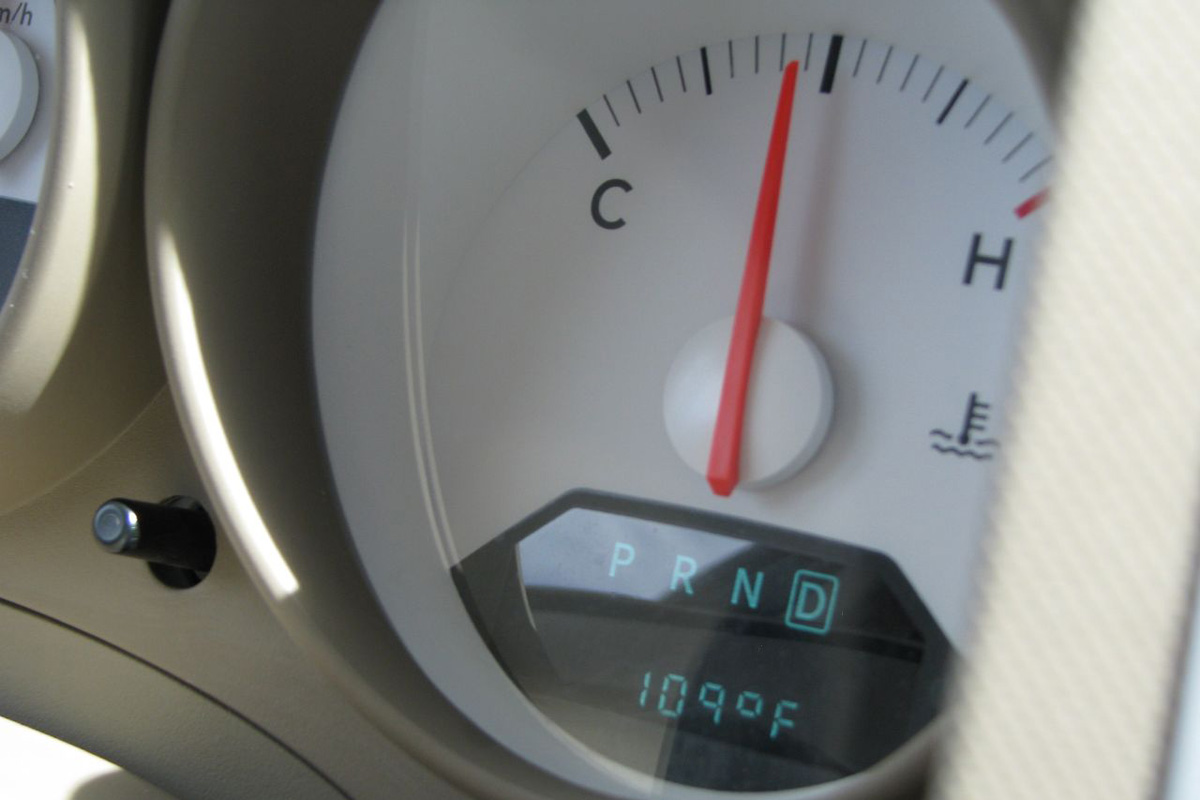With the next few days slated to be the hottest we’ve seen in Northwest Indiana so far this summer, it’s a good opportunity to remind parents about the extreme dangers of leaving children in hot cars.
Heatstroke, or hyperthermia, is the leading cause of non-crash car-related deaths in children younger than 15, reports the American Academy of Pediatrics (AAP). While one’s first thought may be these are cases of blatant cruelty or negligence, the truth is many are due to tragic error on the part of otherwise loving, competent caregivers. The point is this could happen to you.
“In addition to fatalities in hot cars, every summer we see children in the emergency room suffering from hyperthermia,” says Michael Woods, M.D., Medical Director of Porter Health Care System’s Emergency Departments. “Often, they’ve been left for only minutes in a car and parents return to find them suffering from rapidly-increased body temperatures. There are far too many close calls, and it’s completely preventable.”
Misconceptions contribute to these tragic episodes. The perception that cracking the windows will somehow keep the temperature in a safe range is a dangerous myth according to the AAP, which states that within just 10 minutes the temperature inside a car can increase 20 degrees. The Academy continues by explaining the body temperature of children increases three to five times faster than that of adults. Brain damage or death can occur in a matter of minutes.
It’s true that some children are knowingly and negligently left inside hot vehicles. But in most cases, hot car deaths are a result of an adult’s disastrous lapse in memory. Working parents are often tired, stressed and running on ‘auto-pilot’ on their way to and from work or errands. The risk is particularly high when the child is sleeping in the back seat, or when the adult is traveling a path outside their normal routine. Safe Kids Worldwide, a global organization dedicated to preventing injuries in children, offers these tips to reduce the risk by remembering to A.C.T.:
- A = AVOID. Avoid heatstroke-related injury and death by never leaving your child alone in a car, not even for a minute. Be sure to keep your car locked when you are not in it, so kids don't climb in on their own.
- C = CREATE. Create a reminder by putting something in the back of your car next to your child, such as a briefcase, a purse or a cell phone that is needed at your final destination. This is especially important if you are not following your normal routine.
- T = TAKE ACTION. If you see a child or dog alone in a car, call 911 and stay with the victim. Emergency personnel are trained to respond to these situations, and one call could save a life. If help does not arrive quickly and you note signs of immediate distress such as lethargy, poor coloring or heavy breathing, engage witnesses and do what is necessary to ensure the victim’s safety.
“In the event you or someone you know experiences signs of heatstroke, remember NOT to attempt to bring down the temperature too quickly,” explains Dr. Woods. “Don’t use ice or ice water. Attempt to bring down the temperature gradually with cool spray or mild air conditioning, and dial 911 or proceed immediately to the nearest ER.”
Porter Health Care System has two hospital campuses and seven outpatient facilities serving Porter, Lake, LaPorte, Starke and Jasper counties. With more than 350 physicians representing 50 medical specialties, Porter Health Care System is committed to medical excellence and personalized, patient-centered care. Porter is directly or indirectly owned by a partnership that proudly includes physician owners, including certain members of the hospital’s medical staff.


